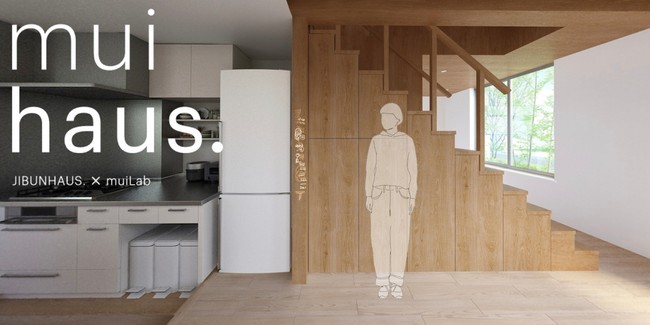Smart home devices are a dime a dozen, especially at CES 2022, but one of my own personal favorites on display at the show was a sophisticated device that blends "calm technology" with Japanese design.
At first glance, mui (stylized as such, in all lowercase) looks no more than a simple block of wood. Upon a single tap, however, this rectangular stick no sooner evolves into a fully realized piece of advanced home and lifestyle technology.
Mui's inspiration derives from the Taoist tenet "mui shizen," which roughly translates to "abandoning artifice," or "live as a part of nature." Through an intricate piece of hardware, mui Lab intends to bridge the gaps between technology and nature while blending a human feel into the system itself.
"Our platform takes a less-is-more approach to technology to create a 'breathing room' in users' minds, so technology will feel like a truly natural part of human life," explains mui Lab CEO Kaz Oki. "We believe the technology is capable of bringing out the humanness of human life and making people happier."
Based in Kyoto, Japan, mui Lab has utilized its surrounding environment and culture to birth a device that doesn't exude calmness alone but transfers it out to all of the various connected devices it accompanies. As the company itself remarks, the mui Platform "can transform any existing smart home devices into 'calmer' ones that feel more natural and effortless to use."
Where typical smart home devices opt to include myriad extras, from massive screens, cameras, and lights, mui takes out all of these unnecessary distractions and instead ensures interconnectivity over useless extras. Mui Lab has worked with several tech companies, mainly Amazon, to afford users seamless integration into homes and the other various devices, such as an Alexa Echo.
The mui Platform likewise uses Matter as its foundational interconnective software, allowing users to easily control their in-home temperature, lights, speakers, and more. This gives consumers the freedom of choice in their smart home gadgetry decisions, making mui the literal hub for all devices. Whether they should work in tandem or not, Matter makes it so.
Of course, mui has a ton of its own features, like a built-in timer, hand-scrawl notations, weather gauge, do-not-disturb night mode, and event calendar reminders. Everything on mui is optimized and fluid, controlled either via the "calm UI" design on its timber face or even through its mobile application, which will be made available on the Google Play store soon enough.
If the design and interconnectivity weren't enough to warrant excitement, mui was not only among the CES 2022 Innovation Award Honorees, but likewise found itself on that very same list back in 2019. Mui Lab isn't finished, though.
Working alongside Jibun Haus, a Japanese housing brand, mui has big plans for the future with "muihaus," a concept that takes the calm design approach of the smart home tech and literally infuses it into the home. This can be witnessed best via their collaborative "Height Marking in Wood" product simply a digital pillar allowing users to connect with their family through technology and everlasting memories.

Utilizing nature within the realm of technology is not only incredibly fascinating but highly worthwhile, as sustainability and e-waste all become major touchpoints for the future of advancing the industry. What mui labs is creating isn't simply a beautiful smart home device that brings all of our favorite gadgets together, it is likewise finding ways of making our world a more natural one to live in beside the advanced technologies we thrive on, and I think that is something truly astounding and commemorable.




![Most Useful Google Chrome Keyboard Shortcuts You Need to Know to Improve Your Browsing Experience [2024]](https://d.techtimes.com/en/full/449047/most-useful-google-chrome-keyboard-shortcuts-you-need-know-improve-your-browsing-experience-2024.jpg?w=184&h=103&f=476d29fd60df70a67f6679f99a2ca6d0)